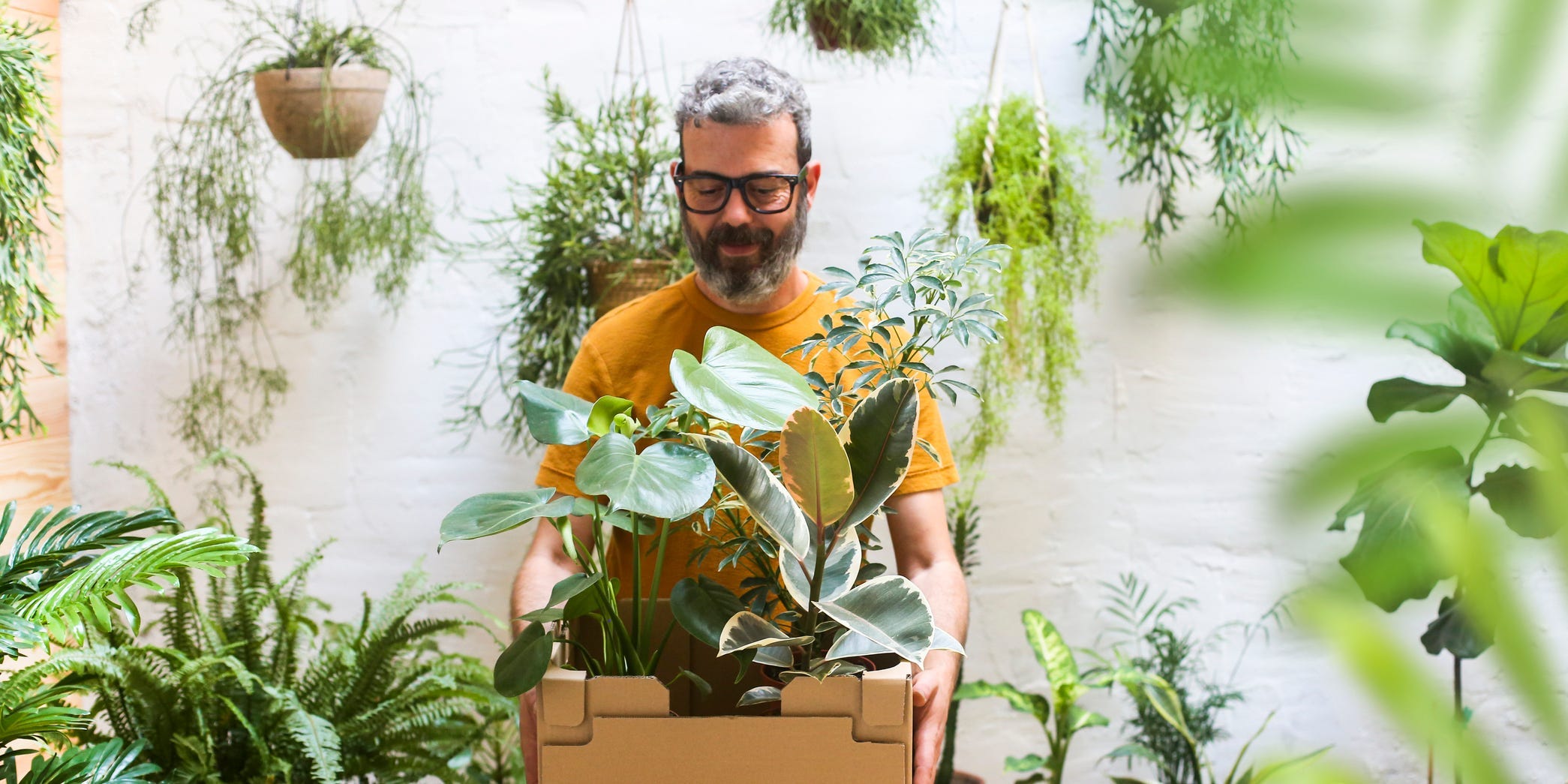
Cavan Images/Getty Images
- Plants do not clean the air enough to make a difference in your home.
- Research has found that you would need to have between 10 and 100 plants per square meter to clean the air, as well as a filter.
- To properly clean the air in your home, get an air purifier and make sure your house has proper ventilation.
- Visit Insider’s Health Reference library for more advice.
Research has found that house plants have a minor effect on indoor quality.
Here’s why plants won’t purify the air in your home and some more effective alternatives you should try instead.
Plants remove very little air pollutants
The idea that adding plants to your home will keep your air clean is unfounded. In order to clean the air in your home, you need something that removes particle pollutants called volatile organic compounds (VOCs).
“Plants remove miniscule amounts of pollution from indoor air,” says Richard Corsi, PhD, a professor of engineering & computer science at Portland State University who studies indoor air quality.
In fact, the amount of VOCs that one plant removes from the air can barely even be measured by scientific instruments, Corsi says. If you wanted to cut down the VOCs in a medium-sized room by 50%, you would likely need to have around 1,000 plants, says Corsi.
Plants absorb carbon dioxide, but not enough to help
Sellers may advertise that indoor plants help to absorb carbon dioxide and produce more oxygen in your home, thus keeping the air clean. However, there's an important caveat to this: plants not only absorb carbon dioxide, they also release it.
During the day, plants absorb CO2 and sunlight and give off oxygen in a process called photosynthesis. But at night, when photosynthesis stops, plants actually give off carbon dioxide in a process called respiration.
But whether they are giving off oxygen or CO2, houseplants aren't able to make much of a difference in air quality for the average apartment or home.
You would probably only see effects from plants if you were in a small, airtight vessel like a spaceship or submarine, Corsi says.
Proven methods to clean the air in your home
Though plants aren't the most effective way to clean indoor air, there are other methods that are proven to work and can help improve your health.
Get an air purifier. Home air purifiers work by passing indoor air through a specialized filter that traps harmful particles like pollutants and allergens.
Having one portable air cleaner in your home is likely more effective than having thousands of houseplants, Corsi says.
Crack the window. Opening your windows from time to time may also be helpful. Though outside air does hold pollutants, indoor air has 2 to 5 times more VOCs than outdoor air, according to the Environmental Protection Agency.
If you suffer from hay fever, however, you may want to avoid this method during allergy season.
Ensure proper ventilation. Make sure the room you're in is well-ventilated whenever you use products that emit VOCs. This means keeping doors or windows open when using strong cleaning products or spraying aerosols.
Insider's takeaway
Indoor plants can look nice and brighten up a room, but you shouldn't depend on them to filter air.
"People should not be fooled into thinking that plants are an effective means of improving air quality in homes," Corsi says.
If you want better air quality, you are better off using alternative methods like keeping windows open or using an air purifying device.
Related articles from Health Reference:
- 6 best types of cardio to improve heart health, burn calories, and help you lose weight
- How to tell if you have pink eye or a stye and treat your symptoms effectively
- Does muscle weigh more than fat? No, building muscle can actually help you lose weight
- 4 natural weight loss supplements that may curb your appetite and help you burn calories
- 7 simple tips to get glowing skin with a healthy diet and skincare routine